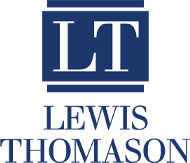The article below first appeared in the Tennessee Bar Association’s September 2020 Business Law Connect, an e-newsletter for section members.
Moonshine and whiskey are big business in Tennessee. Three men—one with a stack of recipes, one with an idea and looking for something to do, and one as the always important “money man”— decided to start a distillery in Sevier County. Unfortunately, this three-man venture did not last long. The partner with the formulas was out of the endeavor after only a few months. Perhaps the dissociated partner was better at making moonshine and whiskey than being a business partner, because although he was out, his formulas were not, and the business continued to grow using the recipes to make the spirits following his departure.
In addition to making good moonshine and whiskey, the dissociated partner also was apparently good enough at appellate practice, as he successfully represented himself before the Tennessee Court of Appeals. There were a number of issues involved in the opinion of Boesch v. Holeman, No. E2019-02288-COA-R3-CV (Tenn. Ct. App. Sept. 14, 2020) including civil procedure, trade secrets, and partnership property law in the context of capital contributions. The issue that carried the day however was the dissociated partner’s argument that the trial court accepted an expert’s valuation of his partnership interest that did not comport with the valuation provisions in Tennessee’s Revised Uniform Partnership Act. Specifically, the Court of Appeals held that the expert, whose competing report was accepted by the trial court over the plaintiff’s expert’s report, improperly applied a discount for the dissociated partner’s minority interest in the partnership. The appellate court noted: “While a discount for lack of marketability as to the entire partnership business and not as to the minority partnership interest may be appropriate, a discount for lack of control by the minority partnership interest is inappropriate because [Tennessee Code Annotated section 61-1-701(b)] calls for determining value based on a sale of the entire partnership business as a going concern.”
Given the breadth of issues addressed in the appeal, the opinion is good reading for Tennessee business lawyers, regardless of their taste for moonshine and/or whiskey. In the partnership context, it serves as a reminder that, with the exception of the statutorily enumerated non-waivable provisions, in the absence of terms in a governing agreement to the contrary, the Revised Uniform Partnership Act will control the relationship between and among the partners as well as with the partnership itself. In this case, there was no written agreement at all. It also serves as a reminder in litigation, that although experts are hired for their subject matter expertise, their opinions, particularly on specific topics such as partnership interest valuation, must comply with Tennessee law. It can be a difficult line for a lawyer to walk between allowing an expert witness to formulate her or his opinion regarding the matter for which she or he has been hired without undue interference by the attorney, while also having that opinion admissible in court and able to withstand appellate review.






